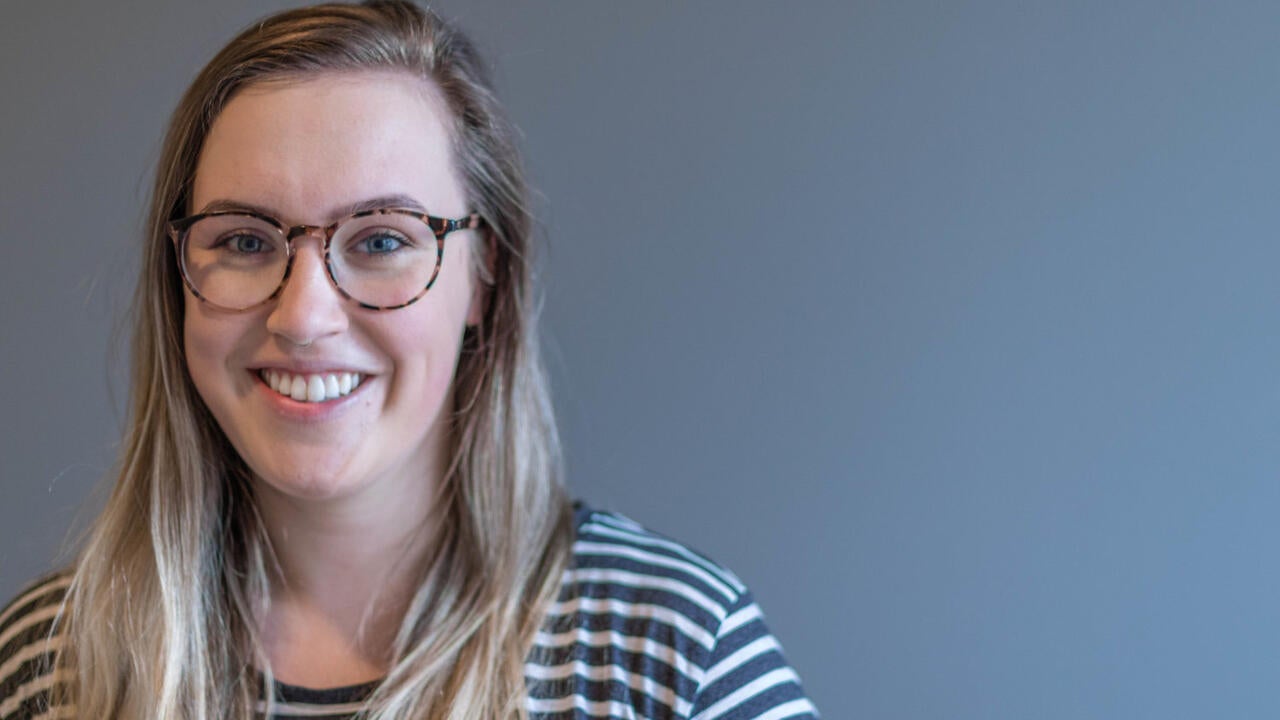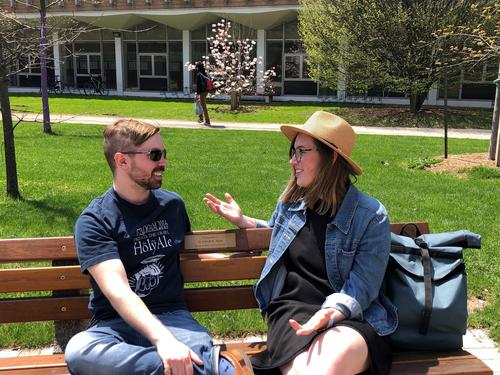
Student turns to on-campus counselling for help with depression
Hannah Gautreau urges others to seek help with mental health issues.

Hannah Gautreau urges others to seek help with mental health issues.
By Carol Truemner Faculty of EngineeringDespite having a bright future as an engineering graduate student, Hannah Gautreau became increasingly depressed and unable to cope with many daily situations earlier this year.
But instead of struggling on her own as she has done in the past, Gautreau knew what to do this time around. She reached out for help.
One of the first things Gautreau did was meet with the on-campus engineering counsellor she’s been seeing on a regular basis since her undergraduate years.
Gautreau says she felt much better after speaking with her counsellor and putting into action the coping skills she’s developed over the past couple of years.
“It was interesting because my energy levels and physiological levels felt the same as they have during previous low points in my life, but this time I felt better equipped to deal with them,” she explains.
By taking the steps she did, Gautreau prevented herself from reaching the low point she had experienced a few years ago after spending more than a decade hiding her severe depression.
Realizing at the time that her life was at risk, Gautreau called Here 24/7, a crisis hotline, and was advised to seek immediate help. She was admitted to Grand River Hospital where she was diagnosed with clinical depression and received treatment for the illness.

Engineering graduate student Hannah Grateau chats with fourth-year mechanical engineering student Keegan Skoretz in the CPH Quad.
Working through issues
Since then, Gautreau has learned how to take care of herself, which includes attending regular counselling appointments.
“For me, it’s like having a routine medical checkup,” she says. “It’s a good chance to get an outside opinion on what’s going on with my life that I may not even know. It’s also a chance for me to work through any issues that are coming up before they start becoming unmanageable.”
One of Gautreau’s coping strategies has been trying to balance her life, which is not an easy feat for the self-described perfectionist who is used to being busy 24 hours a day, 365 days a year. She is learning to scale back on her obligations and let go of things that aren’t adding value her life.
“I thought being a perfectionist was an asset until I realized how it was getting in my way of getting things done,” she says. “I’ve found I’ve become more successful when I’ve given myself permission to fail and not be super human.”
As a third-year management engineering student in 2015, she served as president of the Engineering Society (EngSoc). One of her main objectives while leading EngSoc was to increase awareness of the broad-range of the University’s mental health resources to help students cope with everything from depression to the challenges of being away from home for the first time.
She also launched an initiative called Let’s Talk Mental Health that provides a safe space for engineering students to discuss what is going on in their lives.
Now a management sciences master’s student, Gautreau is focusing her research on educational data mining to improve mental health.
“The important thing with my research is that it helps people and directly contributes to society,” she says.
New report focuses on campus-wide initiatives
In March, the University of Waterloo released a comprehensive report on student mental health that includes 36 recommendations. An investment of $1.2 million is being made to increase the number of mental health professionals in counselling services on campus to 37, including counsellors, psychologists and psychiatrists. The addition will bring the total number of professionals who support students with mental health issues—including physicians and nurses—to more than 70.
Gautreau is pleased with the campus-wide investment and focus on student mental health. She urges anyone struggling with mental health issues to follow her lead and reach out for help. Besides seeking counselling, she recommends talking to professors and staff members to find out what accommodations can be made if time away from school is needed.
“The biggest thing is not to give up and get help,” she emphasizes. “If I didn’t get help, I’d be dead right now and that’s the reality. If you have to put your life on hold that’s fine. Because losing four months is nothing compared to the rest of your life.”
Where to go for help

Read more
Redefining capstone learning by bringing students, faculty and community partners together to tackle real-world challenges

Read more
Here are the people and events behind some of this year’s most compelling Waterloo stories

Read more
A winter holiday message from President Vivek Goel
Read
Engineering stories
Visit
Waterloo Engineering home
Contact
Waterloo Engineering
The University of Waterloo acknowledges that much of our work takes place on the traditional territory of the Neutral, Anishinaabeg, and Haudenosaunee peoples. Our main campus is situated on the Haldimand Tract, the land granted to the Six Nations that includes six miles on each side of the Grand River. Our active work toward reconciliation takes place across our campuses through research, learning, teaching, and community building, and is co-ordinated within the Office of Indigenous Relations.